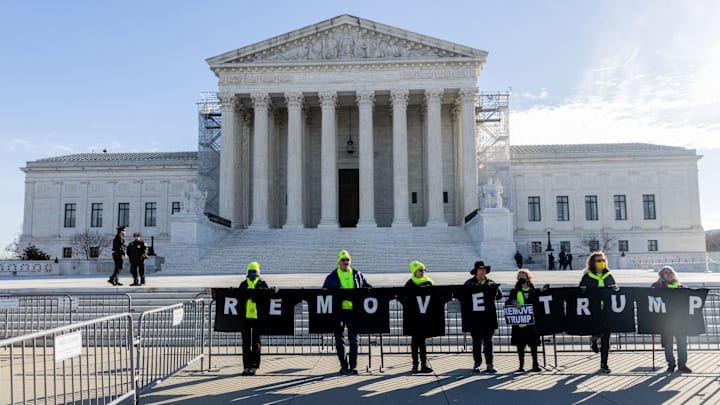How might politics effect the Supreme Court's decision?
While the Supreme Court is supposed to be completely impartial in its decisions, unbeholden to partisan politics, it cannot be denied that there are political factors at play. After all, a third of the Justices were nominated by Donald Trump, a third by Democratic Presidents, and the final third by other Republican Presidents.
While there may well be biases toward the party that nominated them, there also are bound to be fears that a case like this will break all belief in a non-partisan Supreme Court. This would be incredibly dangerous for the stability of the government and the perceived balance of powers.
Professor Melone explains the wire the Justices must walk: "The challenge for the Court in the Colorado opinion is to come to a sensible outcome that most, if not all, its members can agree upon while remaining true to the various maxims of self-restraint it has imposed upon itself throughout its long history."
Even assuming that the Supreme Court is a fully neutral party, however, there are inherent political concerns with this case. Justice Alito specifically brought up the concern that, if Colorado's decision is allowed to stand, other states may retaliate by removing other candidates from the ballot.
According to PBS, there have already been calls to remove both President Joe Biden and Vice President Kamala Harris from office for violating the 14th Amendment. While it is hard to argue that they were guilty of insurrection, the bar for having "given aid or comfort to the enemies" is much lower.
This is a real concern, though Stevenson blew it off during questioning. So however the Supreme Court falls, they will have to address the question of what level of guilt must be ascertained to invoke Section 3. Can Trump supporters fight to keep Biden off the ballot for what some might believe to be trivial reasons? It's a concern that could lead to the 2024 election being fundamentally flawed for both the Republican and Democratic parties.
Slide 7 considers how this decision will impact the future of US politics and law.
